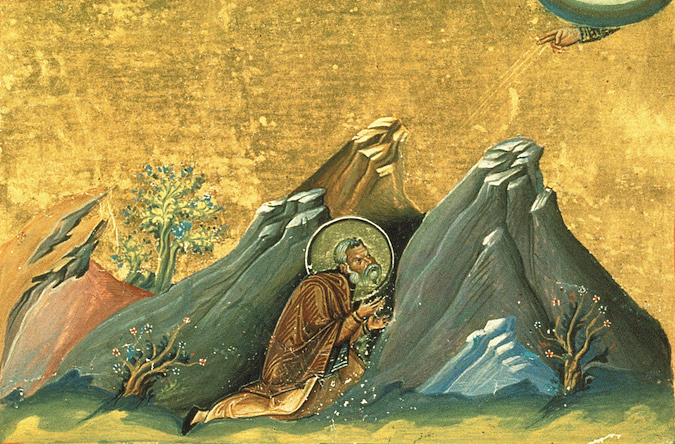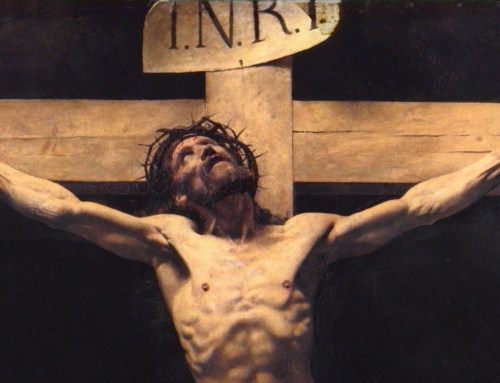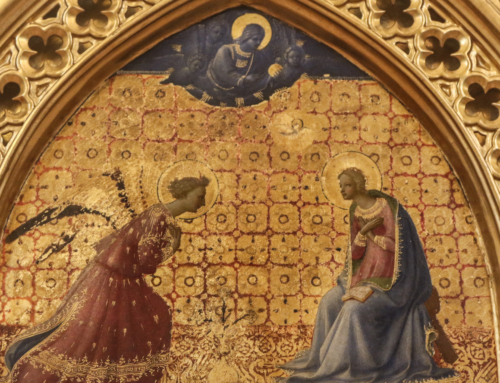Nearly two thousand years ago, a young man wandered off into the Egyptian desert. Some thought he was crazy. But many others would soon follow in his stead. His name was Anthony, and those who likewise ventured off into the desert became known as the Desert Fathers. In the desert, these hermits and monks dedicated themselves to asceticism and prayer.
One of the fruits of their endeavor is The Sayings of the Desert Fathers, a piecemeal collection of their delightful and profound anecdotes. We have thousands of these proverbs and parables—from over a hundred Desert Fathers (and Mothers). In this article, I will give a small sampler. Here are five sayings of the Desert Fathers:
#1, from Abba Poeman
Abba Poemen said: “Teach your mouth to say that which you have in your heart” (Poemen 63).
In only a few words, Abba Poeman tells us what it means to be honest. It’s not just about satisfying the eighth commandment—rather, speaking from the heart is a necessary condition for friendship. Unless our words are spoken from the truth held in the silence of our hearts, we can’t make friends with one another, nor can we make friends with God.
#2, from Abba Agathon:
It was said concerning Abba Agathon that some monks came to find him having heard tell of his great discernment. Wanting to see if he would lose his temper they said to him ‘Aren’t you that Agathon who is said to be a fornicator and a proud man?’ ‘Yes, it is very true,’ he answered. They resumed, ‘Aren’t you that Agathon who is always talking nonsense?’ ‘I am.’ Again they said ‘Aren’t you Agathon the heretic?’ But at that, he replied ‘I am not a heretic’ So they asked him, ‘Tell us why you accepted everything we cast you, but repudiated this last insult.’ He replied ‘The first accusations I take to myself, for that is good for my soul. But heresy is separation from God. Now I have no wish to be separated from God.’ At this saying they were astonished at his discernment and returned, edified (Agathon 5).
Agathon reveals what it means to imitate Christ’s humility. They cast at him dramatic insults– which he casually embraces. But he denies the charge of heresy, noting that something bigger is at stake: heresy entails separation from God. For the heretic clings obstinately to a falsehood about God, but we can’t be united to God if we don’t know him truly. So, while Agathon is willing to be written off as a sinner, he will not accept a charge that sets him apart from communion with God.
#3, from Abba Pambo:
Abba Pambo said: “If you have a heart, you can be saved” (Pambo 10).
We often think that God’s will for us is unpleasant, or even repugnant to the longing of our own heart. But Pambo reminds us that God works with our desires, not against them. He intends to purify our hearts, not remove them; to enkindle our hearts, not freeze them.
#4, from Abba Mius:
A soldier asked Abba Mius if God accepted repentance. After the old man had taught him many things he said, “Tell me, my dear, if your cloak is torn, do you throw it away?” He replied, “No, I mend it and use it again.” The old man said to him, “If you are so careful about your cloak, will not God be equally careful about his creature?” (Mius 3).
God cares more about our well-being than we do. This might come as a surprise, but every joy and every sorrow that God sends our way is given to us out of love. The circumstances of our life are tailor-made for our salvation.
Finally, #5, from Abba Poeman:
Abba Isaac said: “I was sitting with Abba Poeman one day, and I saw him in ecstasy. And, as I was on terms of great freedom of speech with him, I prostrated myself before him and begged him saying: “Tell me where you were.’ He was forced to answer and said: ‘My thought was with Saint Mary, the Mother of God, as she wept by the cross of the Savior. I wish I could always weep like that’” (Poeman 144).
Where do we learn sincerity, truthfulness, humility, and hope, but at the foot of the Cross? There it is our privilege to adore Christ next to the blessed Mary. She will teach us all.
✠
Image: Anonymous, Vendimian of Bythinia (from the Menologion of Basil II)







